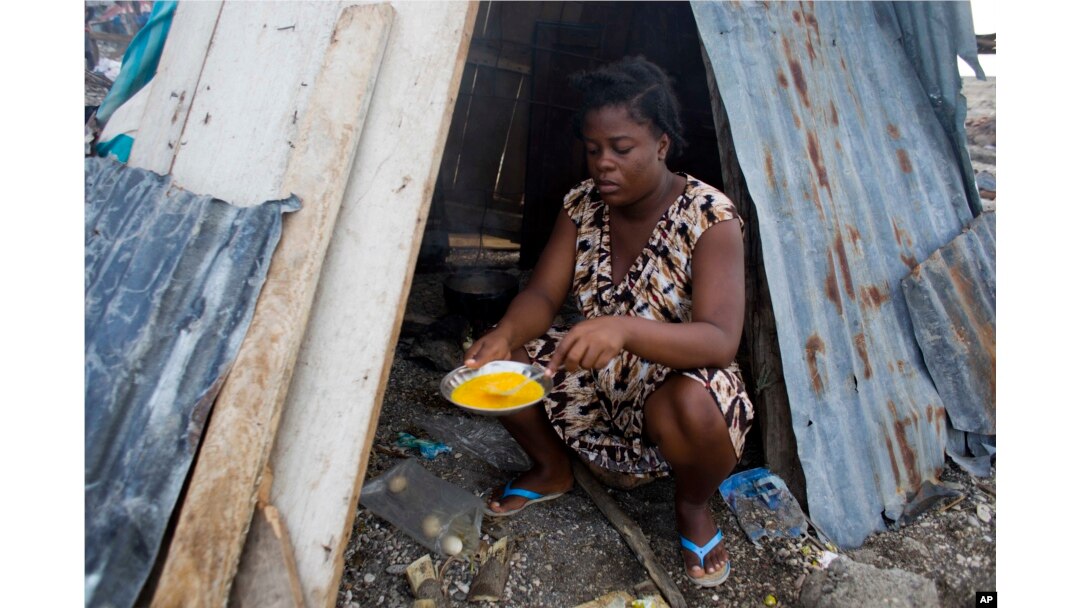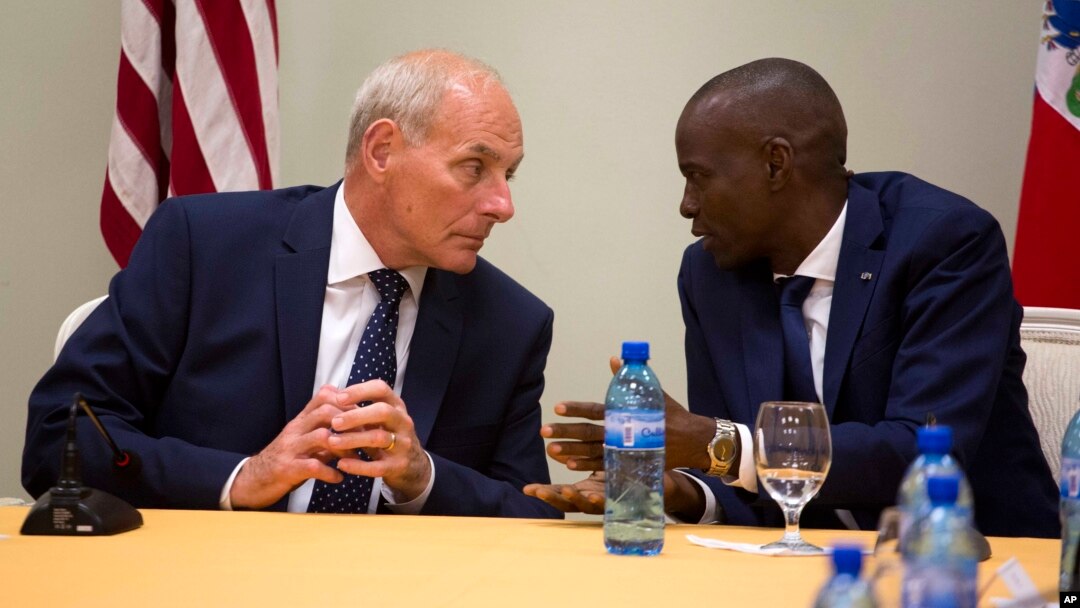The head of the U.S. Department of Homeland Security, visiting Haiti on Wednesday, assured the Caribbean nation’s leader that their respective governments could "work together on any future extensions" of the timetable for Haitians facing repatriation from the United States.
Secretary John Kelly met with Haitian President Jovenel Moise and other senior government officials less than two weeks after Homeland Security announced that a humanitarian aid program for Haitians temporarily living in the United States would be limited to a six-month extension.
Haitian authorities, some U.S. lawmakers and immigration advocates had sought at least another year. Previous renewals had been for 18 months.
About 58,000 Haitian immigrants are registered for Temporary Protected Status (TPS), offered in the wake of a 7.0-magnitude earthquake that struck near Haiti's capital in January 2010. TPS permits those visiting the United States at the time of the quake to temporarily remain in the country, with work privileges, until conditions in their homeland improve. TPS for Haitians was set to expire July 23 and has been extended through January 22.

FILE - Nathanaelle Bernard, 19 and pregnant, cooks an omelet in a makeshift hut shared with five family members in Coteaux, Haiti, Nov. 1, 2016. Hurricane Matthew destroyed her home weeks earlier.
Emphasis on 'temporary'
Haiti is one of 10 countries currently designated for the TPS program by Homeland Security because conditions there make it unsafe or impossible for nationals to return. Those conditions include armed conflict and environmental disasters such as drought.
During his visit, Kelly stressed that the U.S. humanitarian program for Haitians was never meant to be permanent.
"The operative word in the law is ‘temporary.’ It’s not meant to be an open-ended law, but a temporary law," he said at a news conference at the National Palace.
Later, in a separate interview with Port-au-Prince’s RFM Radio, Kelly indicated Haiti’s TPS deadline might be extended beyond January.
"I will clearly have to make a decision on this in November or December, so I will be looking for indicators," Kelly told radio journalist Rothchild Francois Jr., who shared the interview with VOA.
"Right now, my thoughts are [that] it will end. So I’d have to look for indicators as to why we might extend it a short period into the future past January," he continued, adding that the program "is designed to end and not go on forever … which some of them seem to do."
During the earlier news conference, another journalist asked that Kelly respond to critics who questioned whether he'd spent enough time in quake- and hurricane-damaged areas to fully assess Haitian conditions. The secretary bristled.
"Those people don't know what they're talking about," Kelly answered, noting he'd "visited Haiti more than 10 times in the past" while heading the U.S. Southern Command based near Miami.
U.N. peacekeepers from Brazil bump fists with children as they patrol in the Cite Soleil slum, in Port-au-Prince, Haiti, Feb. 22, 2017. U.N. forces have patrolled since a 2004 rebellion engulfed the Caribbean country in violence.
Meetings with officials
A number of humanitarian and development groups working in Haiti have encouraged Kelly to see Haiti’s vulnerability firsthand, including the vast unregulated sprawl just outside Port-au-Prince, where at least 250,000 people have settled since the quake devastated much of Port-au-Prince and surrounding areas. The country has endured successive challenges, including drought and, last October, a hurricane that wreaked havoc in the rural southwest.
Kelly told RFM Radio that he had "traveled all around Haiti" in previous visits, touring camps for people displaced by the quake and inspecting damaged farmland.
On this trip, Kelly focused on meeting officials, discussing issues including Haiti’s desire to expand business opportunities and the need to further develop the country’s national police force.
Kelly also huddled with two representatives of the United Nations’ mission in Haiti: Sandra Honoré, special representative of the secretary-general, and Brazilian Lieutenant General Ajax Porto Pinheiro, the U.N. military commander. The United Nations announced in April that it would end its peacekeeping role in mid-October because it found the country had made sufficient progress toward stabilization. But it also pledged to provide U.N. police units to train Haitian police officers.


